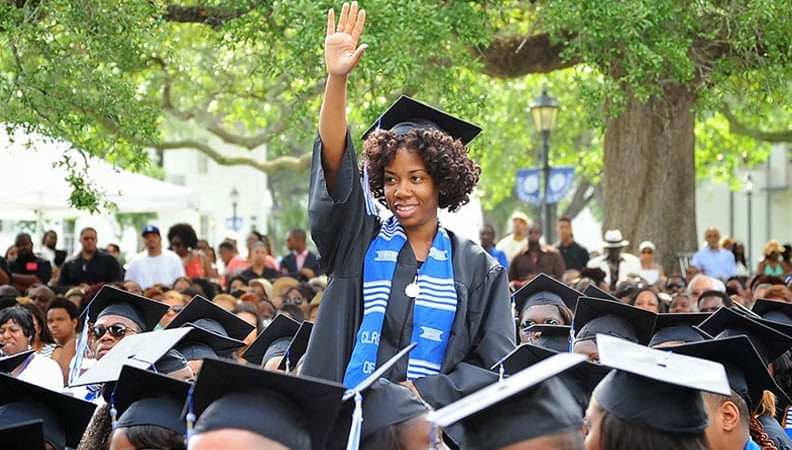How to Advocate for HBCUs

For more than 75 years, UNCF has been on the forefront of advocating for educational equity for African American students. Since its inception, advocacy efforts have made it possible for millions of African American students to get a college education, many of whom would otherwise not be able to do so. Significant data illustrates the strong value that HBCUs provide, not only to African Americans, but to the nation as well, making it imperative that we continue to strengthen and support these institutions.
There are myriad opportunities to advocate for HBCUs. Some are quick and easy, and others require a larger commitment of time and energy. All of these efforts are important to ensure that HBCUs can continue to invest in tomorrow’s leaders.
Everyone can advocate with UNCF for HBCUs by contacting legislators on important issues, such as the level of support HBCU students will receive. However, it’s important to note to work with groups like ours to know the proper timing and the message—as both are so key on Capitol Hill. Taking action is quick and easy. It’s vital that we gather support for important funding issues that will determine the future for HBCUs, such as the passage of the FUTURE Act or the recent $1 billion in stimulus funds HBCUs and minority-serving institutions (MSIs) received from the CARES Act to respond to the coronavirus. And make sure to use your social media platforms to cultivate awareness of the issues with your classmates, associates, friends and family and encourage them to get involved and take action.
An area of particular concern we’re working on is doubling the Pell Grant. UNCF considers this program to be “America’s needs-based scholarship.” When Pell was established in 1965, it covered the vast majority of a qualified student’s educational expense. Over the years, the Pell Grant’s maximum allocation per student had not been increased by Congress and consequently, did not keep up with the rising cost of higher education in our country. Right now, the maximum Pell Grant is only about $6,300 per student per year. The cost of education in the 2017–2018 school year was $20,770 for public schools (in-state) and $46,950 for nonprofit private schools, only including tuition, fees and room and board. Although the average attendance at an HBCUs is lower, the Pell Grant’s purchasing power must be restored. We call on Congress to double the maximum Pell Grant to over $12,000 per student to keep the students with the aptitude and inclination in the pipeline to earning a college degree—and hopefully at one of our prestigious colleges. This is even more important in the time of the Coronavirus epidemic, as we now see the signs that students who should go to college will have to make the hard decision of pursuing higher education versus gaining income for their family immediately in the midst of economic uncertainty as well as disease and death that has disproportionately impacted African American families. Congress’ invest in the students that need it the most is needed now more than ever.
One of our top priorities includes securing a $50 million funding increase for the U.S. Department of Education’s Title III Strengthening HBCUs Program. This is particularly important because HBCUs serve a disproportionately high percentage of low-income and first-generation college students who rely on UNCF and their HBCU for financial assistance.
Other top priority includes urging Congress to reauthorize the 1965 Higher Education Act (HEA), which establishes essential college assistance programs and policies such as Pell Grants and student loans. UNCF’s HEA reauthorization priorities would simplify what has become an overly complicated financial aid system and pave the way for greater college access, affordability and attainment.
Advocacy is always important but in an election year, takes on a sense of urgency. There are opportunities to educate and inform political candidates about our most pressing issues and help them understand their impact beyond the success of HBCUs; a chance to connect the success of HBCUs and their mission to the economic health of the nation. The most effective advocates are informed and we’ve prepared a guide to help you understand the most pressing questions and acceptable answers.
With the support of alumni, supporters, faculty, staff and students, we can continue to make a college education a reality for minority students. Please join our efforts. Your investment in UNCF’s advocacy issues helps us work with congress to change the trajectory of African American students.
 Lodriguez V. Murray is UNCF’s senior vice president of public policy and government affairs.
Lodriguez V. Murray is UNCF’s senior vice president of public policy and government affairs.